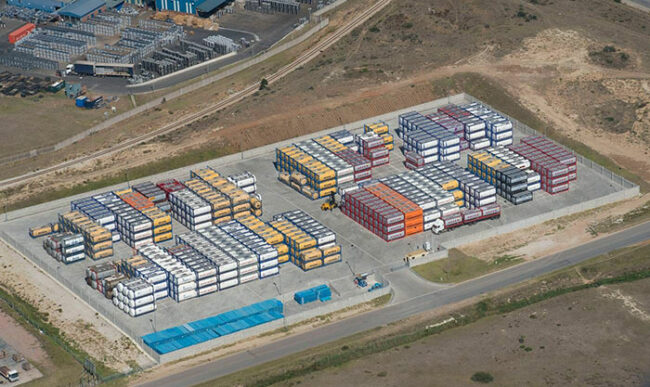With a new management team in place in 2017, combined with escalating competition and increasing custom requirements from customers, Welfit Oddy decided a more modern and agile ERP system was needed that would encompass all the business requirements into a single system environment and data source.
“Conducting a rollout during the 2020 lockdown hindered education, but Welfit Oddy still pushed on for the go-live,” said Guy Warren, ICT manager at Welfit Oddy. “Overcoming challenges, it proved a success. Previously, everyone had operated in their own silos and looked after their own areas, without considering the up/down stream implications. Using remote education, we helped get everyone onto multiple sessions to learn about the new environment. To compound the scenario, load shedding was initiated by the government due to the electricity supply challenges, so managing remote learning with varying electricity outage schedules was not easy, but proved to be the right thing to do.”
Since then, there have been a number of optimisations for continuous improvement. Welfit Oddy recognises it is impossible to meet everyone’s full list of requirements, but is regularly adding functionality via extensions to the core system using Infor Mongoose. This rapid application development (RAD) tool has helped bring other existing systems into the fold by building extensions without the need for customisations to the core ERP.
Welfit Oddy’s primary differentiation from its low-cost competitors is in providing service-specific innovation – creating customer-specific products with varying barrel thickness, insulation materials, heating and cooling capabilities and many more. Welfit Oddy takes orders of 100 tanks or more in a single job, which can be delivered over an 18-month period, often with product variations requested by the customer during the production process.
These manufacturing complexities are addressed at its extensive 24 000-square-foot manufacturing plant, with production ranging from component manufacture through to one of three assembly lines with multiple stations, managed using advanced enterprise resource planning (ERP) and control systems. Long lead times and high-value materials require careful advanced planning and management to ensure the right materials are available at the right time to prevent line stoppages.
On site, a large contingent of specialised permanent staff enforce the highest standards of design, component manufacture, assembly, and quality control to meet intensive regulatory requirements, as required for the transportation of food-grade materials and hazardous chemicals, and to support the complex engineer-to-order manufacturing environment.
Port Elizabeth, South Africa-based Welfit Oddy specialises in the design, manufacture and sale of tank containers, used for bulk liquid shipping and transportation for the international chemical and food-grade logistics markets.
Founded over 100 years ago as a manufacturer of transport-related equipment, in the mid-1980s Welfit Oddy entered the intermodal tank container market, growing to become a global leader for design and manufacture.
Welfit Oddy’s products help its customers transport various kinds of hazardous and non-hazardous liquids by road, rail and sea. Many of its containers are rented out all over the world.
Welfit Oddy produces large volumes of standardised tanks as well as highly customised solutions, delivering top-quality products, built for long-term continuous use and able to withstand challenging transport conditions.
Future
“We have not implemented the Factory Track Shopfloor Control just yet. We believe there is more work to be done getting the business ready in that area,” concludes Warren. “But overall, we see the future being in the cloud, which will provide additional security for us and our customers. We had avoided it to date, but cloud is a very exciting, very integrated product. This will be increasingly important as we start to find it harder to find the skills for on-premises IT and ERP work.”
“Cloud may be on the plan in the next few years. However, Africa does not have stable communications or power supplies, which is a current concern. Electricity supply issues with load shedding now affecting production but, thankfully, it is not closing our back-office systems. Of course, everything comes with a cost-benefit, and cloud unlocks many doors including artificial intelligence (AI). This could have big implications for us in the future. We certainly have our eye on it.”

